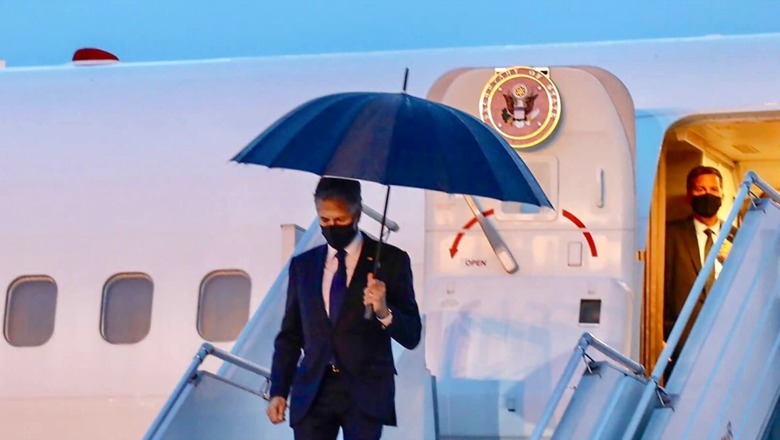
views
US Secretary of State Antony Blinken is set to make a quick visit to India, his first since assuming charge as US President Joe Biden’s foreign policy man. In the less than 24-hour stop, Blinken landed on Tuesday evening and leaves Wednesday evening.
The agenda of the visit is increasingly veering towards Afghanistan now, even as the two-and-a-half hours of meeting time set aside for him and his Indian counterpart S Jaishankar will have much more to discuss on the bilateral front as well.
India believes that the Taliban is lying low briefly and their next phase offensive will start end of August – the deadline of US troops withdrawal. This is the time that there could be a change of strategy with the Taliban trying to take over the urban areas and provincial capitals. For this reason, the next two-three months will be crucial in determining the future of Afghanistan and the stability of the region.
India is likely to highlight that because of hurried troop withdrawal, some gaps were created in air assets support and intelligence surveillance capabilities for Afghanistan, giving Taliban the required chink in the armour to take on the Afghan forces.
Indian government sources also pointed out that with regard to the implications of withdrawal of US forces from Afghanistan, India will also raise the need for sustained pressure on Pakistan on terror financing and terror havens.
India is expected to highlight how the lines between Pakistan and Taliban remain open. Reports suggest that injured Taliban fighters were treated at Jilani hospital in Quetta. Rallies have been organised in support of the Taliban in Quetta. In KPK, calls have been made by leaders to join war against afghan forces. India will stress on the fact that logistical support continues to come from Pakistan and that even President Ghani openly blamed Pakistan in Tashkent for pushing Taliban fighters into Afghan territory.
In this context, Blinken’s meeting with National Security Advisor Ajit Doval assumes significance too. The US has already stated that, “The United States and India are also closely coordinating on regional security issues, such as Afghanistan.”
There is stability in another region that has occupied the two sides over the last couple of years – the Indo-Pacific. The US, in its fact sheet said, “The United States supports India’s emergence as a leading global power and vital partner in efforts to ensure that the Indo-Pacific is a region of peace, stability, and growing prosperity and economic inclusion.”
With a common China threat, discussions on deepening Quad engagement will be another key focus area. A Foreign Ministerial Quad meeting is also likely later this year. The US has also been keen on another in-person Quad Summit this year itself.
Read all the Latest News, Breaking News and Coronavirus News here.




















Comments
0 comment